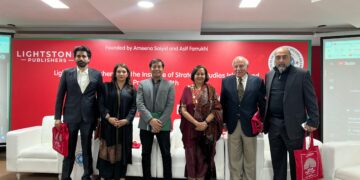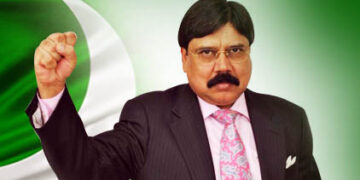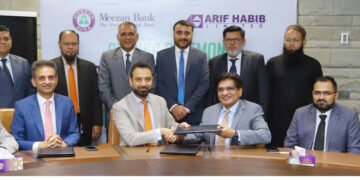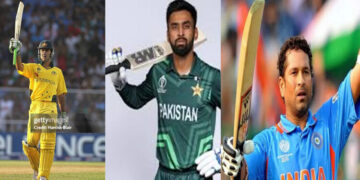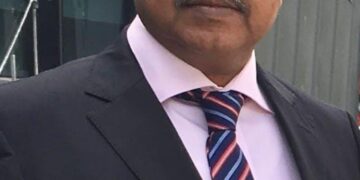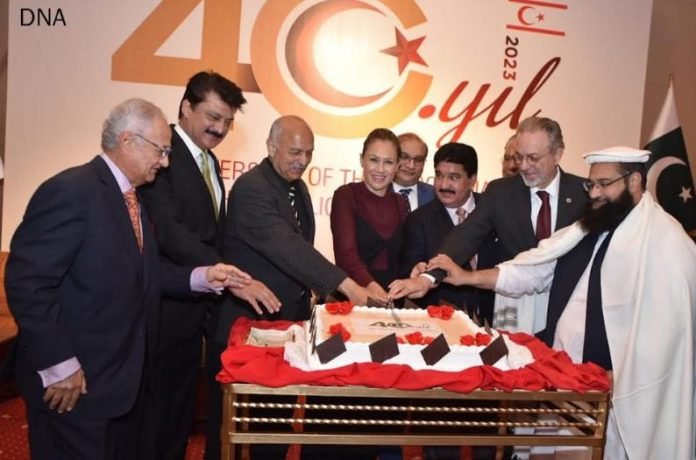KARACHI, 31 March (PR): The meeting of Shura-e-Hamdard Karachi on “Ukraine, Russia Conflict and Pakistan’s Foreign Policy” was held yesterday at Hamdard Corporate Head Office, presided over by Justice (r) Haziq-ul-Khairi. Mrs. Sadia Rashid, President Hamdard Foundation Pakistan along with distinguished members of Shura Karachi attended the meeting and expressed their views.
Justice Haziq-ul-Khairi said that in the current global situation where many blocs were emerging on the basis of common interests at the same time, Pakistan has to pursue a strategy of neutrality and non-alignment. The founder of Pakistan Quaid-e-Azam and Allama Iqbal laid out the foundations of Pakistan’s foreign policy in their correspondence; according to which the country’s foreign policy should be independent and non-aligned. Even at that time, there were two camps of opposite ideologies, but Quaid-e-Azam maintained a non-aligned foreign policy aimed specifically at establishing diplomatic relations with all countries on the basis of mutual cooperation and benefits.
Anwar Siddiqui said that the main objective of a country’s foreign policy is to safeguard its national interests at the global level. Pakistan should formulate its foreign policy according to its own interests. Pakistan is definitely under diplomatic pressure from Western countries to support Ukraine against Russia. However, Pakistan managed it with a better strategy and has certainly done a good job in supporting the ceasefire.
Prof. Dr. Tanvir Khalid said that new blocs are being formed in the world on the basis of common interests. However, the current situation is no longer the same as the last Cold War, because world trade has increased tremendously. Countries rely on each other for economic development. That is why there is a divided opinion in Europe on whether to take a hard line against Russia, against the wishes of its long-term ally the United States. Europe’s trade with Russia and China is greater than that of the United States. Pakistan must devise its diplomacy with every country on the basis of mutual interests.
Col (r) Mukhtar Ahmed Butt said Pakistan has deep strategic and business ties with the United States and European countries. We have to formulate a strategy to further improve relations with these partners. Pakistan can have good relations equally with China and the United States at the same time, if an appropriate foreign policy is implemented. The country’s economy is weak. In such a difficult time, giving an amnesty scheme to the corrupt instead of holding them accountable is a bad strategy and would create more problems for the country in the long run.
Commodore (R) Sadeed Anwar Malik said that aggression could not be supported. Pakistan should definitely oppose aggression as it is against international laws and agreements. Apparently, the US has trapped Russia in Ukraine, so there is a bigger game in play. Pakistan should engage the United Nations to find a peaceful solution to this crisis. To manage a country’s affairs in global conflicts and challenging scenarios, the government should take the opposition into confidence to formulate a national strategy.
Senator Abdul Haseeb Khan said that our foreign policy is balanced but we are lacking in its implementation. The world has become a global village with the advent of modern communication technology. Therefore, no matter what region the war is taking place, its effects are felt all over the world. World politics can create difficulties for Pakistan because Pakistan’s economy is weak and vulnerable. By initiating a no-confidence movement against the sitting prime minister, opposition has paved a way for political instability in the country. They should have acted prudently in the national interest.
Usman Damohi said that our foreign policy should be formulated keeping in view the economic benefits. The US views its relations with Pakistan from China’s perspective. Pakistan must take appropriate steps to convince US lawmakers that Pakistan-US relations are not based on any third country. Pakistan can provide an economic corridor in Central Asia to the United States and Europe.
At the end, Justice (r) Haziq-ul-Khairi thanked all the members for attending the meeting.



